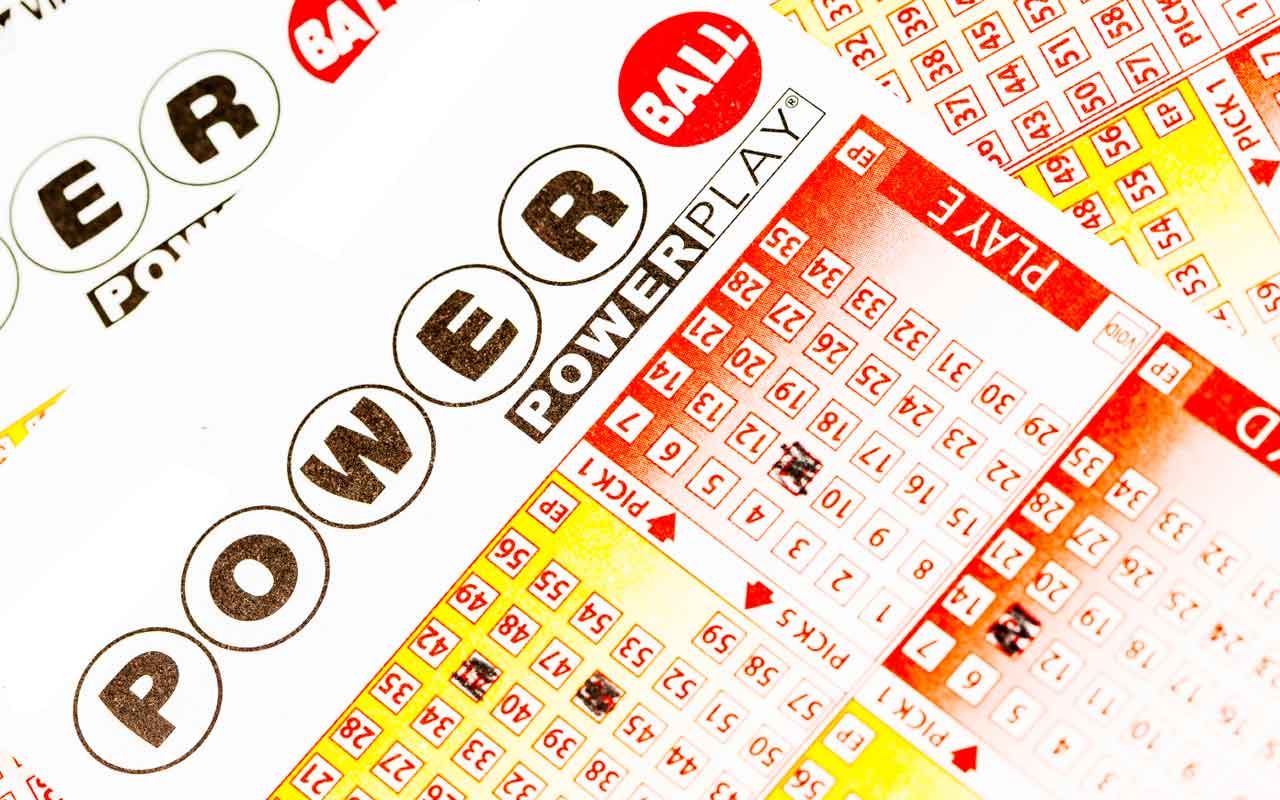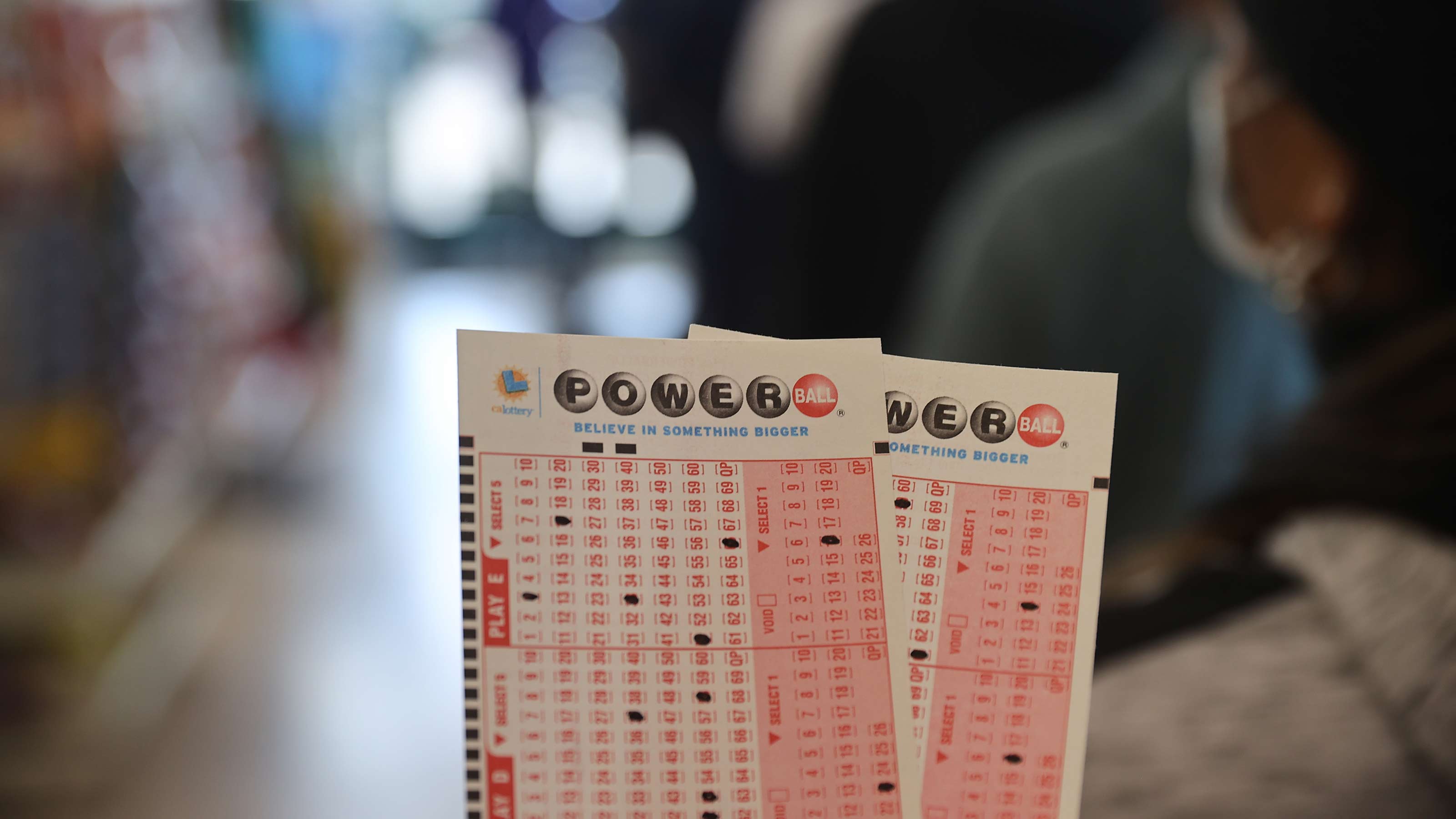5 Better Investments Than Powerball
Your odds of getting a good return on your money are much higher than winning the lottery.

Profit and prosper with the best of Kiplinger's advice on investing, taxes, retirement, personal finance and much more. Delivered daily. Enter your email in the box and click Sign Me Up.
You are now subscribed
Your newsletter sign-up was successful
Want to add more newsletters?

Delivered daily
Kiplinger Today
Profit and prosper with the best of Kiplinger's advice on investing, taxes, retirement, personal finance and much more delivered daily. Smart money moves start here.

Sent five days a week
Kiplinger A Step Ahead
Get practical help to make better financial decisions in your everyday life, from spending to savings on top deals.

Delivered daily
Kiplinger Closing Bell
Get today's biggest financial and investing headlines delivered to your inbox every day the U.S. stock market is open.

Sent twice a week
Kiplinger Adviser Intel
Financial pros across the country share best practices and fresh tactics to preserve and grow your wealth.

Delivered weekly
Kiplinger Tax Tips
Trim your federal and state tax bills with practical tax-planning and tax-cutting strategies.

Sent twice a week
Kiplinger Retirement Tips
Your twice-a-week guide to planning and enjoying a financially secure and richly rewarding retirement

Sent bimonthly.
Kiplinger Adviser Angle
Insights for advisers, wealth managers and other financial professionals.

Sent twice a week
Kiplinger Investing Weekly
Your twice-a-week roundup of promising stocks, funds, companies and industries you should consider, ones you should avoid, and why.

Sent weekly for six weeks
Kiplinger Invest for Retirement
Your step-by-step six-part series on how to invest for retirement, from devising a successful strategy to exactly which investments to choose.
Bought your Powerball ticket yet? The grand prize has climbed to $700 million, and will climb even higher if no one matches the winning numbers Aug. 23.
There's nothing wrong with putting a couple of bucks toward a lottery ticket every once in a while. Who doesn't dream of winning big some day? But don't confuse fantasy with reality. The odds of hitting the Powerball jackpot are 1 in 292 million.
There are smarter ways to spend your hard-earned cash. Let's say you've gone from shelling out $2 every month on the lottery to spending $20 a week. That adds up to $1,040 over the course of a year. Rather than dropping a grand on your lottery habit, spend the money in one of these five ways instead. You're all but guaranteed to come out ahead.
From just $107.88 $24.99 for Kiplinger Personal Finance
Become a smarter, better informed investor. Subscribe from just $107.88 $24.99, plus get up to 4 Special Issues

Sign up for Kiplinger’s Free Newsletters
Profit and prosper with the best of expert advice on investing, taxes, retirement, personal finance and more - straight to your e-mail.
Profit and prosper with the best of expert advice - straight to your e-mail.
1. Pay down credit-card debt. Paying off a balance with a 13% interest rate is like earning 13% on your investments -- an incredibly valuable use of the money. And once you pay off your credit-card debt, you can start using that money to build your retirement savings (
).
2. Boost your 401(k) contributions. If you have an extra $1,040 to spare, then put that money to work for you in your retirement account. You'll really benefit if your employer matches your contributions. Investing an extra $86.67 a month (which is what $1,040 breaks down to over 12 months) in a 401(k) over 20 years costs you $20,801, but after two decades the account balance will be $49,632, assuming an 8% annual return and a 25% tax bracket. And that's with no company match. After factoring in the 25% tax savings, since the investment was made with pretax dollars, the real cost to you is just $15,601. So you effectively triple your money in 20 years (
).
3. Open a Roth IRA. If you're already maxing out your retirement account at work, contribute to a Roth IRA. If you invest $86.67 every month in a fund that earns a 7% annual return, in 30 years you’ll have nearly $106,000. And you can withdraw your earnings tax-free after you turn 59½. For 2017, you can contribute to a Roth if your modified adjusted gross income is less than $118,000 if you're single ($186,000 for couples who file jointly).
4. Increase mortgage payments. A little extra goes a long way. A $200,000 mortgage at 4% over 30 years works out to a monthly payment of about $955 (excluding real-estate taxes and insurance). You'll pay nearly $144,000 in interest alone. But put an extra $86.67 a month toward the same mortgage and you'll save almost $24,000 in interest and retire the loan four-and-a-half years early.
5. Invest in a taxable account. You might want to use the money to buy stocks or shares of mutual funds outside of your retirement account. If you invest $86.67 a month for 20 years in stocks or mutual funds with a 7% annual return, you'll have nearly $42,000. Spend that same amount on lottery tickets each month for 20 years, and you will have shelled out $20,800. See our picks for the 25 favorite no-load mutual funds and 27 best stocks for 2017.
Profit and prosper with the best of Kiplinger's advice on investing, taxes, retirement, personal finance and much more. Delivered daily. Enter your email in the box and click Sign Me Up.
-
 Nasdaq Leads a Rocky Risk-On Rally: Stock Market Today
Nasdaq Leads a Rocky Risk-On Rally: Stock Market TodayAnother worrying bout of late-session weakness couldn't take down the main equity indexes on Wednesday.
-
 Quiz: Do You Know How to Avoid the "Medigap Trap?"
Quiz: Do You Know How to Avoid the "Medigap Trap?"Quiz Test your basic knowledge of the "Medigap Trap" in our quick quiz.
-
 5 Top Tax-Efficient Mutual Funds for Smarter Investing
5 Top Tax-Efficient Mutual Funds for Smarter InvestingMutual funds are many things, but "tax-friendly" usually isn't one of them. These are the exceptions.
-
 Powerball Swells to $1.4 Billion — The Third-Largest Pot
Powerball Swells to $1.4 Billion — The Third-Largest PotPowerball has had 33 consecutive drawings without a grand prize winner.
-
 Five Ways to Save on Vacation Rental Properties
Five Ways to Save on Vacation Rental PropertiesTravel Use these strategies to pay less for an apartment, condo or house when you travel.
-
 How to Avoid Annoying Hotel Fees: Per Person, Parking and More
How to Avoid Annoying Hotel Fees: Per Person, Parking and MoreTravel Here's how to avoid extra charges and make sure you don't get stuck paying for amenities that you don't use.
-
 Seven Things You Should Know About Winning a Lottery Jackpot
Seven Things You Should Know About Winning a Lottery JackpotMaking Your Money Last It’s definitely not likely you’ll hit big. But if you win, you could be happy for years to come — no matter what the naysayers tell you.
-
 How to Appeal an Unexpected Medical Bill
How to Appeal an Unexpected Medical Billhealth insurance You may receive a bill because your insurance company denied a claim—but that doesn’t mean you have to pay it.
-
 Amazon Prime Fees Are Rising. Here’s How to Cancel Your Amazon Prime Membership
Amazon Prime Fees Are Rising. Here’s How to Cancel Your Amazon Prime MembershipFeature Amazon Prime will soon cost $139 a year, $180 for those who pay monthly. If you’re a subscriber, maybe it’s time to rethink your relationship. Here’s a step-by-step guide to canceling Prime.
-
 How to Haggle for Almost Anything
How to Haggle for Almost AnythingSmart Buying Learning how to haggle is an invaluable skill. These strategies will help you negotiate a better price for just about any product or service.
-
 Disability Insurance Can Provide COVID Coverage
Disability Insurance Can Provide COVID CoverageCoronavirus and Your Money If you are concerned about long-term complications from COVID-19, consider disability insurance coverage.